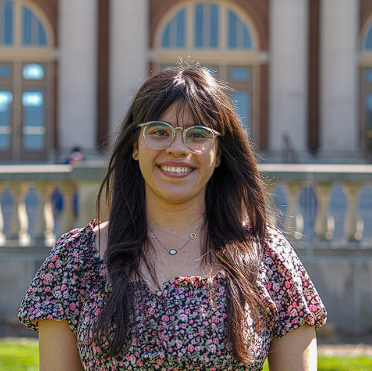Dr. Paola A. Baldaguez Medina is an Assistant Professor of Chemical Engineering at the University of Puerto Rico at Mayagüez. She completed her undergraduate degree (B.S.) in Chemical Engineering at the University of Puerto Rico at Mayagüez, through the undergraduate articulated program with the University of Puerto Rico at Humacao, where she had multiple research experiences that motivated her to pursue further degrees. She earned her M.S. and Ph.D. in Chemical and Biomolecular Engineering from the University of Illinois at Urbana-Champaign, where she was recognized as an Alfred P. Sloan Scholar and an NSF Graduate Research Fellow. Her doctoral research focused on “Harnessing Redox Electro-Sorbents and Reactive Separations for Efficient PFAS Remediation in Water Systems.”
Throughout her career, she has been very active in mentoring Hispanic students in engineering. Consequently, she was awarded a Grassroots Initiatives to Address Needs Together (GIANT) grant to help undergraduate Hispanic students pursue graduate degrees. Dr. Baldaguez Medina’s current research interests lie in the development and application of selective redox materials for water remediation and the advancement of wearable sensors for cardiovascular diseases using electrochemically mediated technologies. Her work aims to address critical challenges in environmental engineering and healthcare by leveraging innovative approaches to contaminant removal and biomarker detection.
Throughout her career, she has been very active in mentoring Hispanic students in engineering. Consequently, she was awarded a Grassroots Initiatives to Address Needs Together (GIANT) grant to help undergraduate Hispanic students pursue graduate degrees. Dr. Baldaguez Medina’s current research interests lie in the development and application of selective redox materials for water remediation and the advancement of wearable sensors for cardiovascular diseases using electrochemically mediated technologies. Her work aims to address critical challenges in environmental engineering and healthcare by leveraging innovative approaches to contaminant removal and biomarker detection.

